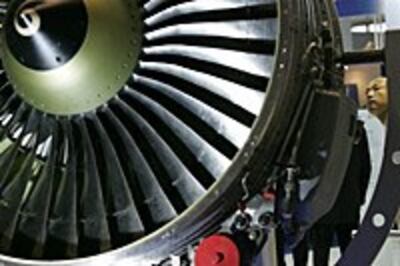
Experts see little chance that the United States will ease curbs on sensitive exports to China despite calls from an influential trade group this month.
On May 16 in Beijing, the American Chamber of Commerce in China released a report calling for elimination of Chinese barriers to bilateral trade. But the group also urged U.S. officials to ease restrictions on the export to China of items with possible military applications.
Washington has largely blocked sales of items like arms and aerospace equipment to China since that country’s crackdown on democracy demonstrations in Tiananmen Square in 1989.
Chinese officials meanwhile have argued that the United States could reduce the over $200 billion trade imbalance between the two countries by allowing sales of more sensitive high-tech goods.
In an interview with Radio Free Asia, Morris Goldstein—a senior associate at the Institute for International Economics in Washington—said that a revaluation of China’s currency would have a greater impact on the trade deficit.
"If you look at estimates of the effect of a 20 percent revaluation of the renminbi, along with a sympathetic 20 percent appreciation in the currencies of other Asian countries and Japan, that could be something like a $60-80 billion improvement in the U.S. current account deficit."
If you look at estimates of the effect of a 20 percent revaluation of the renminbi, along with a sympathetic 20 percent appreciation in the currencies of other Asian countries and Japan, that could be something like a $60-80 billion improvement in the U.S. current account deficit,
The effect of dropping export restrictions would be “much, much smaller,” Goldstein said.
William Reinsch—president of the Washington-based National Foreign Trade Council, which represents some 300 companies and promotes free trade—agreed that the U.S.-China trade gap cannot be closed simply by changing export rules.
“That’s not going to be overcome by increasing shipments of high-tech products. You can’t even make enough airplanes, which are the biggest-ticket item we’ve got, to cover that gap,” Reinsch said.
Reinsch, who also serves as a member of the U.S.-China Economic and Security Review Commission, added that there is little prospect in any case that export controls for China will be eased. In fact, said Reinsch, a debate is now under way within the U.S. government over whether further restrictions should be added to counter China’s rise in military power.
U.S. trade groups “think that the controls on exports to China of strategic military and dual-use goods are already thorough and not in need of expansion,” Reinsch said.
William Dobson, managing editor of Foreign Policy and an expert on Asian politics and security at the Washington-based Carnegie Endowment for International Peace, said that the United States still has too many security concerns about China to permit a major change in U.S. export rules.
“Right now, on balance, I’d say that there’s enough reservation and concern about the relationship that [the call for change] doesn’t have the momentum it needs to see serious movement.”
Original reporting by Michael Lelyveld. Edited for the Web by Richard Finney.
